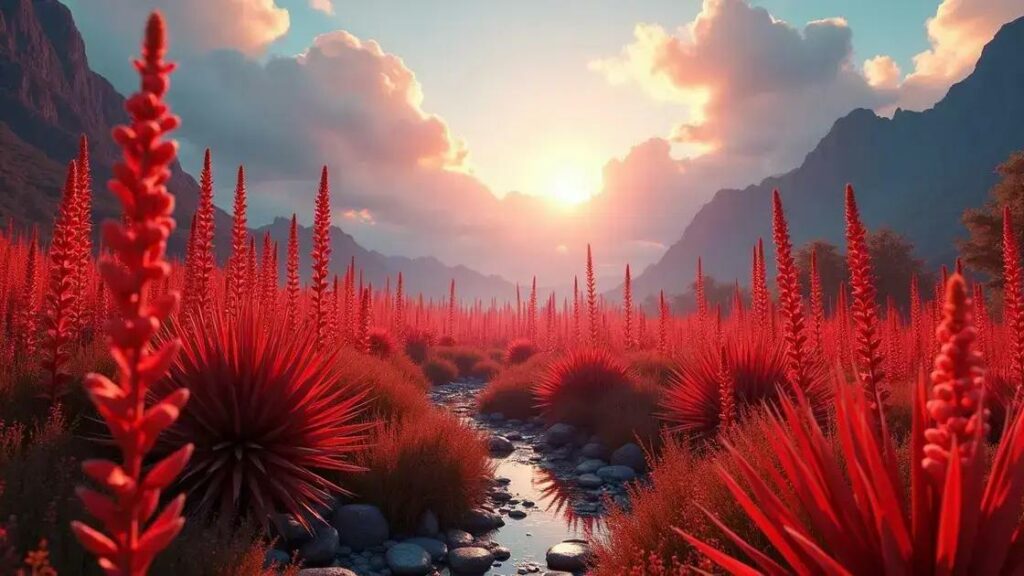How to care for red hot poker plant enthusiasts will find that this unique plant thrives with the right approach to its needs. Whether you’re a beginner or experienced gardener, knowing how to support its growth can lead to stunning blooms. These tips will illuminate the path to success in cultivating this vibrant garden addition.
Table of Contents
ToggleChoosing the right location for your red hot poker plant
Choosing the right location for your red hot poker plant is crucial for its growth and blooming potential. These vibrant plants thrive best when situated under the right environmental conditions. Below, we’ll explore the best practices for selecting the ideal spot for your kniphofia.
Consider sunlight requirements
Red hot poker plants flourish in full sunlight, which helps them grow robustly and produce their stunning flowers. Aim for at least 6 hours of direct sunlight a day for optimal health.
Assess soil drainage
Good drainage is important for these plants, as they do not like sitting in water. Choose a location with well-draining soil to prevent root rot. You can improve drainage by:
- Adding organic matter to the soil
- Creating raised beds or mounds
- Incorporating sand or gravel into the planting area
Evaluate exposure to wind and harsh conditions
Although red hot poker plants are hardy, strong winds can damage their tall flower spikes. Consider planting them near a wall, fence, or other structures that can offer some protection from harsh winds. A sheltered location also helps to conserve moisture and maintain optimal growing conditions.
Ideal spacing considerations
When planting multiple red hot poker plants, ensure there is adequate space between them to promote air circulation and sunlight penetration. A spacing of about 12 to 18 inches apart will provide enough room for each plant to thrive.
Real-world tips for selecting locations
Many gardeners observe that placing their red hot poker plants near walking paths or patios not only enhances visibility but also provides a more attractive setting. This way, you can enjoy their vibrant flowers up close while being mindful of their space needs.
For further advice, especially on potential red hot poker plant diseases, consider exploring indoor gardening techniques to better understand how location affects plant health.
Watering tips and tricks for thriving kniphofia

Watering tips and tricks for thriving kniphofia plants are essential to ensure their vibrancy and health. Knowing how and when to water your red hot poker plants can make a significant difference in their growth and blooming.
Understanding watering needs
Red hot poker plants prefer to have their soil kept moderately moist. Here are some essential tips for proper watering:
- Water deeply but infrequently to encourage deep root growth.
- Check soil moisture several inches below the surface; if dry, it’s time to water.
- Avoid waterlogging the soil, as this can lead to root rot.
Best times to water your kniphofia
The timing of watering is just as important as how much water you provide. It’s recommended to:
- Water early in the morning to allow excess water to evaporate during the day.
- Avoid watering in the late afternoon or evening to deter fungal diseases.
Seasonal adjustments
As seasons change, so do the watering needs of your plants. Consider the following:
- During hot summer months, kniphofia may require more frequent watering.
- In cooler months, reduce watering frequency as the plant’s growth slows.
Signs of under- or over-watering
Recognizing the signs of under- or over-watering can help maintain the health of your red hot poker plants. Look out for:
- Yellowing leaves can indicate over-watering.
- Wilting leaves may suggest under-watering.
For further insights on keeping your red hot poker plants healthy, you can visit exploring indoor gardening techniques that provide tips for plant maintenance.
Best practices for fertilizing your red hot poker plant
Best practices for fertilizing your red hot poker plant are vital for promoting healthy growth and vibrant blooms. To achieve the best results with kniphofia, it’s important to understand their specific nutritional needs throughout the growing season.
Choosing the right fertilizer
When selecting a fertilizer for your red hot poker plants, consider the following:
- Use a balanced fertilizer with equal parts nitrogen, phosphorus, and potassium (N-P-K). For example, a 10-10-10 formulation is ideal.
- Opt for slow-release fertilizers that feed the plants gradually.
- Organic options such as compost or well-rotted manure can also provide essential nutrients.
Timing your fertilizer application
Applying fertilizer at the right time is crucial for maximizing its benefits. Follow these guidelines:
- Fertilize in early spring as new growth begins to appear.
- A second application in mid-summer can help sustain growth during blooming.
Application methods for kniphofia
Different application methods can impact the effectiveness of fertilization. Consider:
- Granular fertilizers should be spread evenly around the base of the plant and lightly raked into the soil.
- Liquid fertilizers can be diluted and applied directly to the soil around the roots.
Monitoring plant health
Status of your red hot poker plants can indicate whether your fertilization practices need adjustments. Watch for:
- Bright green foliage signaling good nitrogen levels.
- Yellowing leaves, which could suggest nutrient deficiency.
If you encounter specific issues with your red hot poker plants, be sure to consider exploring indoor gardening techniques for more insights and solutions.
In conclusion
Caring for your red hot poker plant effectively encompasses several key practices, including choosing the right location, proper watering, and following best fertilization techniques. By understanding these essentials, you can enjoy vibrant blooms and robust growth in your garden.
Whether you’re an experienced gardener or just starting, being attentive to your plant’s needs and providing the right care will yield beautiful results. For additional guidance, check out tips on enhancing your indoor garden to further support your gardening journey.

